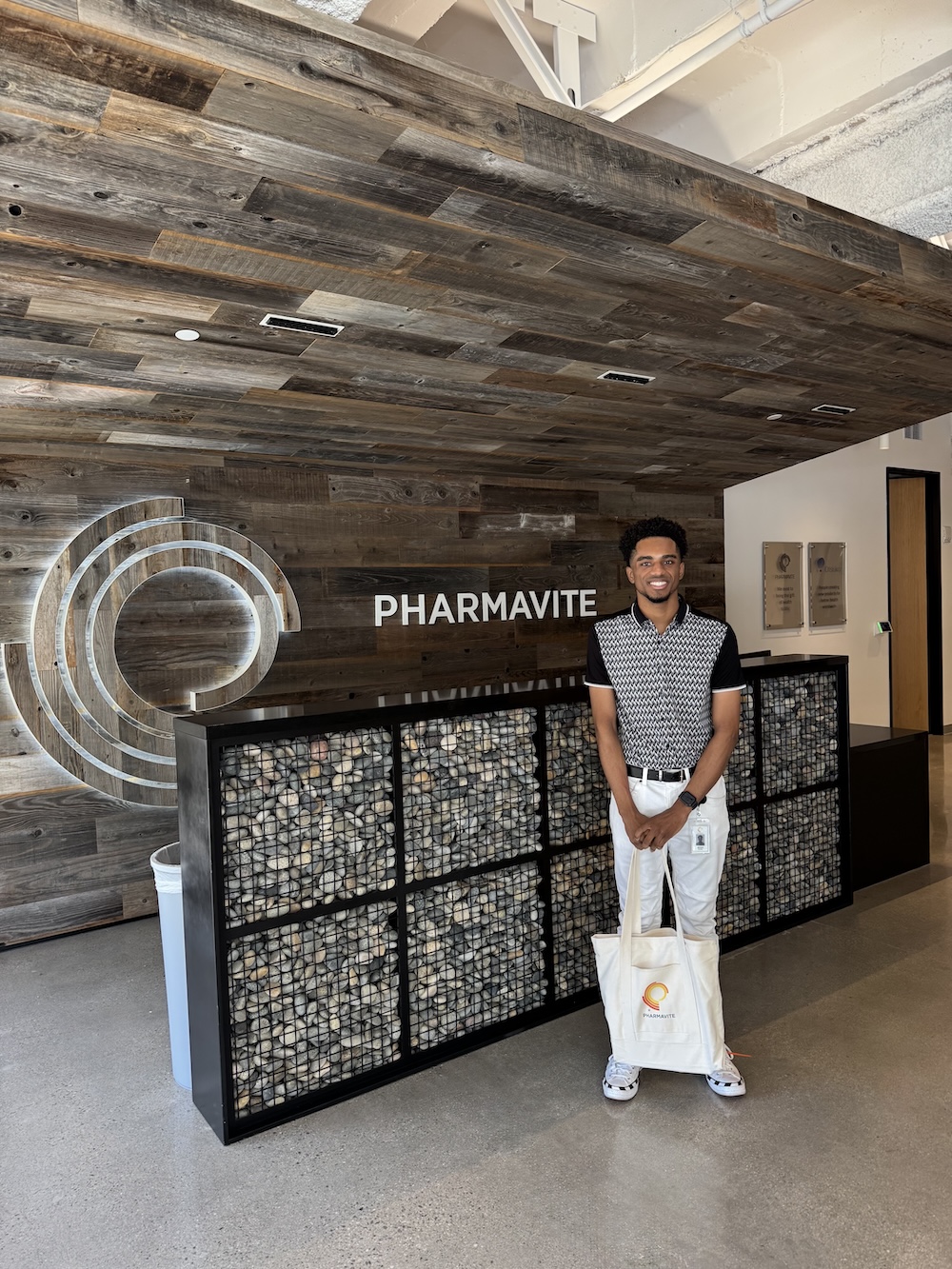
Hybrid JD Evening student Michael Crumby ’27 has had his eye on being an in-house counsel at a major corporation since he started law school. With his summer internship at Pharmavite, which manufactures popular health food products and vitamins, he got his first taste of the life of an in-house counsel, working on a trademark enforcement project and observing the many roles in-house legal teams play within a major corporation.
How did you land your summer job?
I came across the Association of Corporate Counsel (ACC) SoCal Summer Internship Program through the 12Twenty job portal and applied right away. I was eager to learn what it takes to work in-house and wanted to build my network among current L.A. in-house counsel. After going through the interview process, I was offered a spot and matched with Pharmavite, a leading VMS (vitamins, minerals, supplements) company known for manufacturing a line of products by Nature Made, Megafood, Equelle, Uqora, and Bonafide. It was a perfect match, as the company’s mission to support health and wellness for all closely reflects my own values and was especially rewarding since I actually keep Nature Made vitamins in my cabinet.
What is the most interesting part of your job?
What I’ve found most interesting is not just seeing how in-house counsel support the business but getting to know the business behind the legal work. From day one, I received comprehensive training on our full product portfolio and was introduced to every department at our corporate office to understand how each contributes to the company’s goals. I even had the chance to tour our facilities where Nature Made vitamins are produced and distributed, which gave me a real understanding of how Pharmavite operates. What also surprised me is witnessing how our in-house counsel serves as a legal generalist for the company by anticipating legal risks, resolving legal matters between employers, and supporting other departments when legal questions arise. I saw this firsthand by observing a deposition with our employment litigation team, sitting in on a trademark renewal with our intellectual property team, and even helping our accounting team with a nexus study by analyzing legal requirements across different states.
What has been your most challenging assignment thus far?
Working on a trademark enforcement project for Pharmavite’s registered trademarks under the Nature Made brand has been my most challenging assignment so far. I was tasked with researching potential common law infringers, drafting a cease-and-desist template, and submitting takedown requests for unauthorized listings on platforms like Amazon and eBay. As someone new to IP and trademark law, I found it challenging at first to navigate the USPTO database and to understand the different design search codes and classifications. The research process was also time-consuming, given the number of registered marks Pharmavite owns. But with support from the IP team, I’ve gotten better and developed a much stronger understanding of brand protection and why it’s so important for a company to protect its mark.
What new legal skill have you acquired during your summer job?
I have developed advanced legal research and writing skills by learning how to draft and tailor cease and desist letters and received training on how to create NDAs for our high-profile partnerships. I also gained a strong introduction to trademark and IP law as I got to learn the key terms, codes, and processes used to protect brand identity.
What bit of legal knowledge have you been able to display?
The legal writing techniques I learned from Professor Katherine Lyons’ class were useful when drafting and reviewing legal documents. I found myself referencing a book called “A Lawyer Writes” that she recommended to us. My Business Associations course with Professor Carlos Berdejó also gave me a heads up into the corporate structure, where our subsidiaries like Pharmavite, FoodState, and Bonafide Health are separate entities. This helped me keep things clear when working on legal matters. I also kept in mind ABA Model Rule 1.13 from my Ethical Lawyering class, which reminded me that the corporation is our client and in-house lawyers are obligated to advance the needs of the business.
How has Loyola helped you map your career path?
Loyola helped me realize there are so many ways to be a lawyer beyond what you see in courtrooms. I’ve gained a stronger understanding of in-house counsel as a career path through alumni panels, conversations with professors during office hours, and resources from the Career Development Office. Loyola has also made it easy to connect with alumni working as in-house counsel, many of whom have been generous in sharing their experiences and advice.